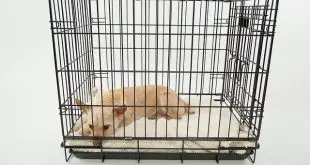This post may contain affiliate links. Please read our disclosure.
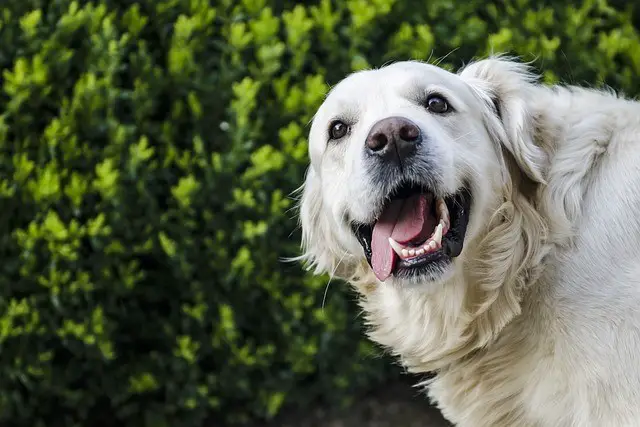
Have you ever wondered how many teeth do dogs have? It turns out that the answer is not as straightforward as it may seem. The number of teeth dogs have depends on their breed, age, and overall health.
In this blog post, we’ll take a look at the different factors that determine how many teeth a dog has and why it’s important to understand these factors in order to keep your pup healthy.
Article Contents
Factors That Determine Tooth Count
A puppy’s tooth count can vary depending on its breed. Smaller breeds, such as Chihuahuas, typically have fewer teeth than larger breeds like Golden Retrievers.
However, all dogs have the same number of permanent adult teeth—42! This includes 20 baby (or deciduous) teeth and 22 adult (or permanent) teeth.
When puppies are born, they don’t have any teeth at all. As they grow up, their baby teeth or puppy teeth will start to come in around 8 weeks old and will be fully developed by the time they reach 6 months old.
During this time, their adult teeth will start to come in and replace their baby teeth until all 42 of them are present by the time the pup is an adult dog of 7 months old.
How Many Baby Teeth Do Dogs Get?
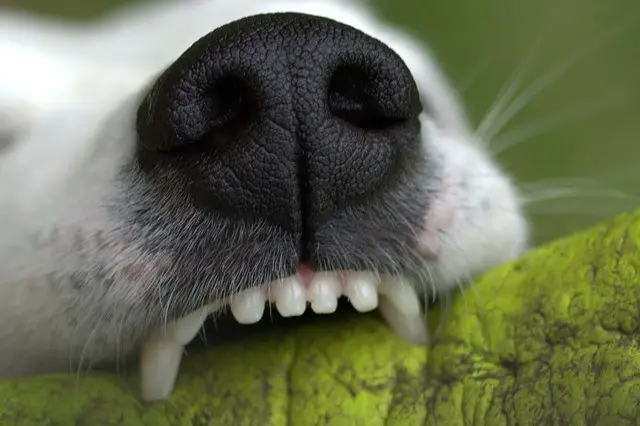
Did you know that dogs have a set of teeth specially designed for their early years? Generally, puppies get 28 baby teeth between the ages of three and eight weeks. This initial wave of teeth is known as the deciduous teeth or milk teeth. These little chompers will be replaced by 42 adult teeth between five and seven months of age in adult dogs.
A puppy with all its permanent teeth represents a complete dentition, which should include four canine teeth, twelve incisors, sixteen premolars, and ten molars. These distinct features will let your pup chew through kibble and bones easily!
How Many Teeth Does a Dog Have?
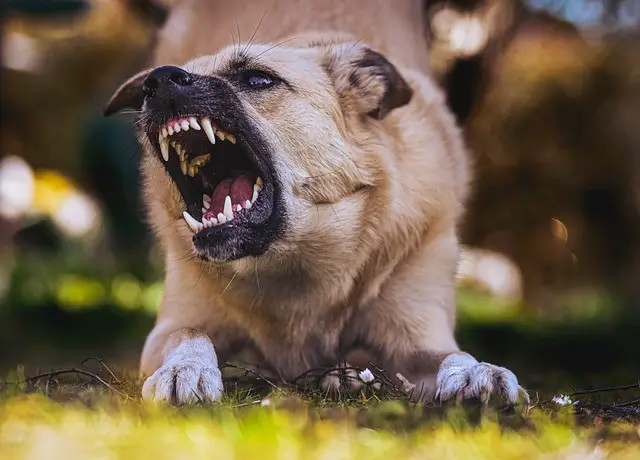
Packed full of sharper-than-human teeth, a healthy dog’s mouth can boast up to 42 chompers. While the exact number of a dog’s teeth can vary based on breed and age, dogs will typically sprout 28 baby teeth between the age of two and eight weeks.
As these small milk teeth fall away, their adult counterparts take their place bringing the grand total to approximately 42 permanent teeth.
Dog owners should keep an eye out for any missing or broken gnashers as well as regular changes in diastema, an overlap of the top and bottom edges of canine teeth.
Keeping tabs on your pup’s mouth health allows you to ensure they are in peak condition with every single tooth gleaming – which is invaluable to maintaining good oral hygiene now and in the future!
How To Keep Dog Teeth Clean
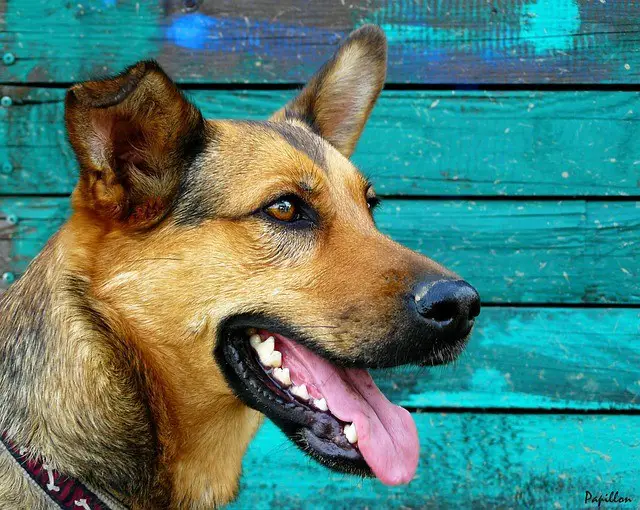
Keeping dog teeth clean is an essential part of their overall health and well-being. Bacteria can accumulate in the mouth, causing inflammation and gum disease, leading to many issues such as bad breath, periodontal disease, and serious oral health issues.
So it is very important to take care of your dog’s dental health so that they don’t get any kind of dental disease.
The good news is that it’s not hard to keep your dog’s pearly whites sparkling! Regular brushing with a soft toothbrush and toothpaste specially formulated for dogs will help to reduce plaque build-up while adding dental chews or gels to your pup’s daily routine can assist in cleaning hard-to-reach spots.
Monitor for any changes in your dog’s oral health regularly and be sure to visit the vet at least once a year for professional teeth cleaning. With a few simple steps, you can make sure your pup has a healthy smile for life.
Getting Your Dog’s Teeth Cleaned By a Vet
As the owner of a dog, regular check-ups with your vet should include attention to oral hygiene. Dogs have 42 teeth in their upper jaw, and it is important to be aware of how many teeth remain when cats and dogs age. Some may develop loose or wiggly teeth that need to be extracted.
In addition, any tooth decay can spread to other parts of their body causing further health complications. Having a vet regularly clean your dog’s teeth helps keep their oral health in check and prevention for any more serious problems down the line.
For extra preventative care, offer your pup chew toys that help keep their gums healthy between cleanings.
Cost of Getting Dog Teeth Cleaned At a Vet
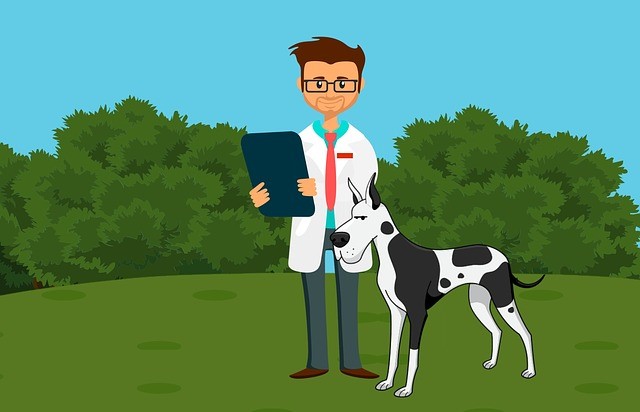
Pet owners take great care of their dogs and often want to do whatever they can to ensure that their pet is healthy and happy. Completing routine tasks like taking your pup in for regular vet appointments and frequently brushing their teeth are essential components to maintaining a pup’s overall health.
One procedure that could be recommended by the vet and is typically done occasionally is getting a dog’s teeth cleaned.
This procedure requires sedation so it can be a bit costly, ranging anywhere from 300 hundred to 700 hundred dollars depending on the size of the dog i.e. rates are different for puppy teeth puppies and adult dog teeth and the severity of the dental issue.
It’s important for pet parents to budget for this cost in advance so that when it comes time for a cleaning, there are no surprises or financial strain.
Depending on the veterinary services available in your area, dog dental cleaning can cost anywhere between $300 – $700.
It’s important to note that some dogs may lose one or more of their adult canine or incisor teeth due to injury or gum disease. If this happens, it won’t affect the total number of adult teeth but it will make it difficult for them to chew food properly and may even cause discomfort while eating.
Therefore, it’s important to monitor your pup’s dental hygiene closely in order to prevent any potential tooth loss or gum disease from occurring.
Conclusion:
In conclusion, all dogs have 42 permanent adult teeth – 20 baby (or deciduous) and 22 adult (or permanent) – regardless of breed size or age.
Factors such as injury or gum disease can lead to tooth loss which can make eating uncomfortable for your pup so be sure to keep an eye on their dental hygiene! With proper care and regular visits to the vet, your pup should remain healthy with a full set of pearly whites!
 Petnile Comprehensive Pet Care Guides
Petnile Comprehensive Pet Care Guides



